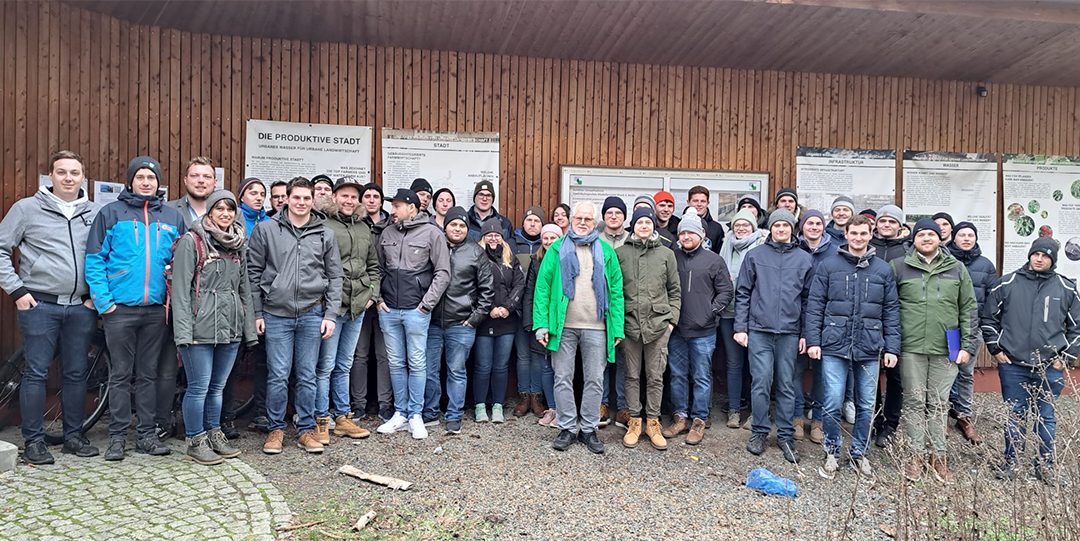After many difficulties, we were able to put our water house back, located at the, Bernburger Straße 22 in Berlin, into operation in December 2022, although we are still waiting for important electronic components – EdiCitNet project partner Nolde & Partner informed.
Another complicating factor was that we could not find a sanitation company that was willing or able to build the system to our specifications. So we had to take matters into our own hands and, of course, learned a lot in the process.
The plant now processes 10,000 litres of grey water daily into high-quality service water. As soon as it gets warmer and the neighbouring greenhouse can be planted again, we will also supply the greenhouse with service water again.
Before that, we will put the online monitoring into operation and try to increase the throughput again step by step. In the future, we want to use surplus service water that is not needed for flushing the toilets of the approximately 250 residents and for the greenhouse more for watering green areas, because the adjacent reed area, which contributes greatly to improving the living environment and the microclimate in summer through its high evaporation capacity, has suffered greatly from a lack of water in recent dry years.
On Saturday, 21.01.23, we had the first group of visitors with almost 40 participants from the Höhere Landbauschule Rotthalmünster in the water house, who were divided into two groups and informed about water and nutrient recycling as well as urban farming.
The Staatliche Höhere Landbauschule Rotthalmünster offers graduates of agricultural schools a commercially oriented advanced agricultural training. After successfully completing the school year, they are awarded the professional title “State-certified agricultural business economist”.
Farmers, who are particularly affected by climate change, drought and high fertiliser prices, are very open- minded when it comes to decentralised water and nutrient recycling and other forms of food production. This resulted in very interesting discussions for both sides that lasted over 2 hours.



